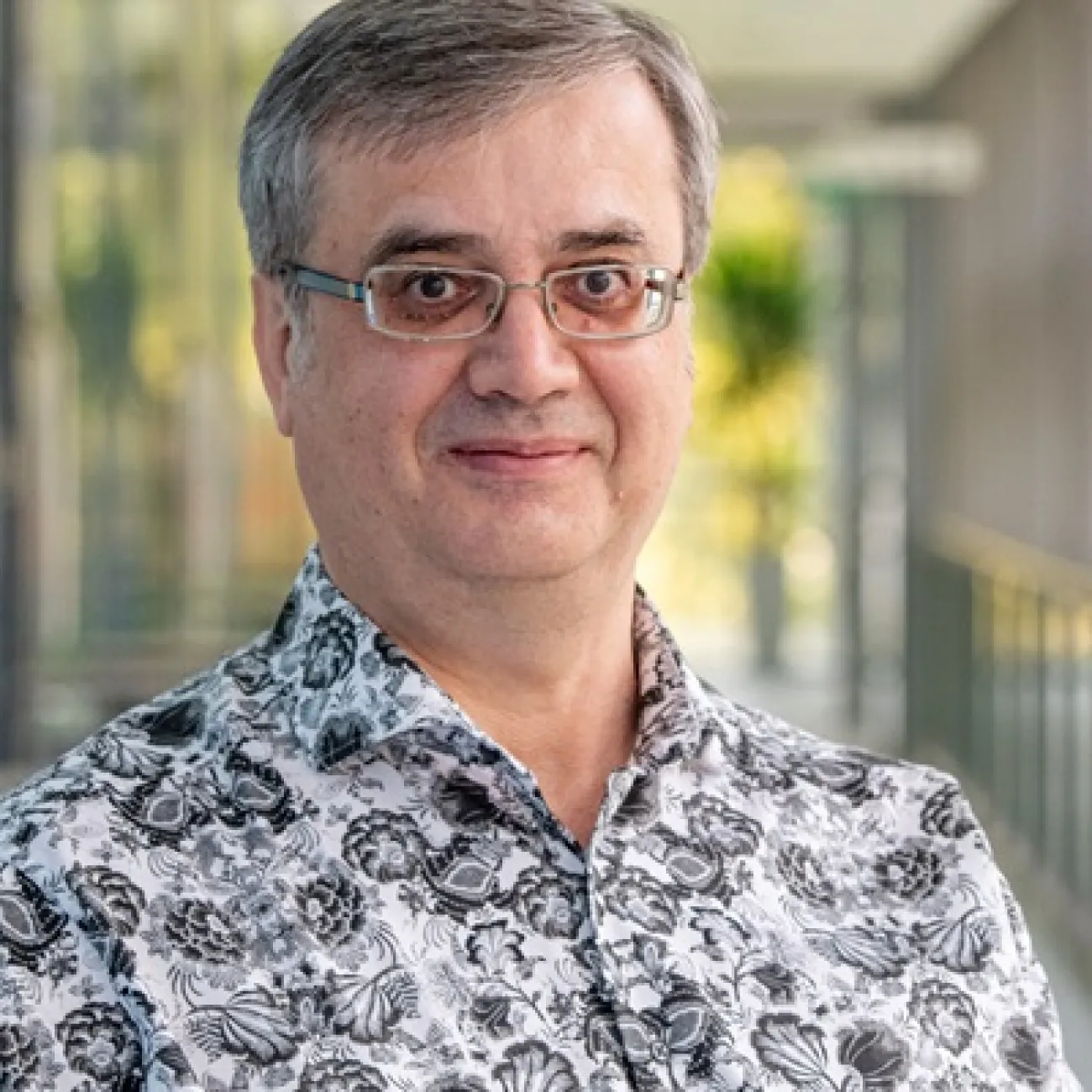About
Dr Koeck is an algebraist with research interests in Algebraic Geometry, Algebraic K-Theory, Algebraic Number Theory and Homological Algebra. A common theme in Koeck's research form group actions on spaces in Algeba, Geometry and Number Theory. More specifically he has worked in (equivariant) Riemann-Roch theory, operations on higher K-theory, Galois module theory, Belyi theory and simplicial homological algebra.
Research
Research groups
Research interests
- Riemann-Roch theory
- (Operations on) Higher Algebraic K-Theory
- Equivariant Riemann-Roch theory
- Geometric Galois Module Theory
Current research
Dr Koeck's research falls into the broadly understood area of Riemann-Roch theory. Riemann-Roch theory originates from the fundamental problem of computing the dimension of so-called Riemann-Roch spaces such as the vector space of global sections of a vector bundle or, more classically, the vector space of global meromorphic functions on a compact Riemann surface that satisfy certain pole and zero order conditions. The classical and celebrated Riemann-Roch theorem from the 19th century which solves the latter problem has seen vast generalisations over the past century which are central to Algebraic K-Theory, Algebraic Geometry, Arithmetic Geometry and Differential Geometry. Dr Koeck's research is particularly focussing on the following topics:
- (Operations on) Higher Algebraic K-Theory: Exterior power operations furnish the Grothendieck group and higher K-groups of a ring or a scheme with additional structure which is at the heart of Grothendieck’s Riemann-Roch Theory. While higher K-groups have originally been defined and studied using homotopy theory, there are now purely algebraic definitions of both higher K-groups and exterior power operations available that invite to be studied from the purely algebraic point of view.
- Equivariant Riemann-Roch theory: In the equivariant context, Riemann-Roch spaces are studied as group representations when a group acts on the vector bundle compatible with a given action of the group on the underlying space. Many versions of equivariant Riemann-Roch theorems have been proved over the past three decades or so. Current research in this area concerns refinements of the equivariant Adams-Riemann-Roch theorem and equivariant Riemann-Roch theorems for inertial K-theory or for orbifold varieties.
- Geometric Galois Module Theory: Relating global invariants to invariants that are created from local data is a fundamental and widely studied topic in number theory. In Geometric Galois Theory, an equivariant version of this local-global principle is studied in the situation when a (finite) group acts on a variety over a finite field. More precisely, a goal is to relate epsilon constants appearing in functional equations of Artin L-functions to global invariants that are extracted from the equivariant structure of certain Riemann-Roch spaces. Particularly explicit and deep theorems exist when the space is a curve and the action of the group is tame. Interesting and sought-after generalisations concern wild actions on curves and actions on surfaces.
Publications
Pagination
Teaching
Bernhard has taught on a number of modules, including:
GENG0001 Mathematics A
MATH3078 Further Number Theory
Biography
PhD Regensburg, Habilitation Karlsruhe, Heisenberg Fellow
